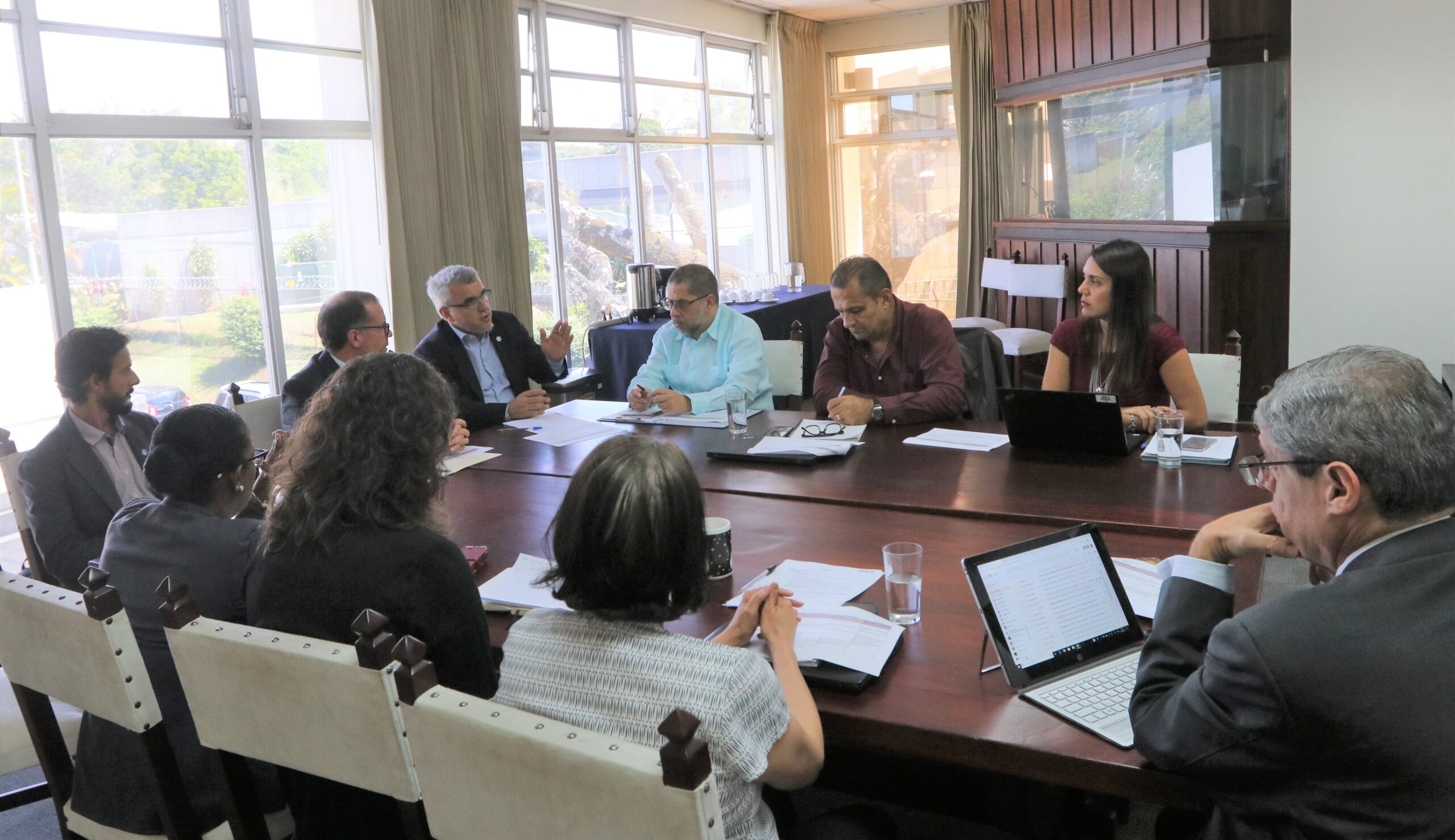The organizations also proposed actions to prevent Fusarium Tropical Race 4 and a swine fever outbreak on the continent.

San Jose, 26 February 2020 (IICA). The Inter-American Institute for Cooperation on Agriculture (IICA) and the Food and Agriculture Organization of the United Nations (FAO) defined a joint work plan to be implemented this year in Central America and the Dominican Republic, which prioritizes topics such as agriculture and climate change, trade, agricultural health and food safety, as well as migration, livestock farming and coffee.
Adoniram Sanches, Sub-Regional Coordinator for Mesoamerica and FAO Representative in Panama and Costa Rica, and Víctor Milla, Official Program Representative for the organization, met with the Director General of IICA, Manuel Otero, and other institutional authorities to define the initial initiatives that will be implemented.
Otero remarked that he hopes to “succeed in establishing a unity of action between FAO and IICA that complements efforts and generates impacts of a high technical value on agriculture in the hemisphere.”
Sanches underscored the willingness and need to engage in joint, coordinated work, and invited IICA to present the inter-institutional action plan at FAO’s upcoming regional meeting, to be held in April in Nicaragua.
One of the highlights of the plan is a meeting between ministers of Agriculture and the Environment from Central America and the Dominican Republic, to be held in early July in that country. The purpose of the meeting will be to foster dialogue and develop joint proposals to make agricultural production more sustainable and resilient to extreme climate events.
The session would be held after the meeting of the Executive Committee of IICA, one of the Institute’s governing bodies, which will also take place in the Dominican Republic.
IICA and FAO also agreed on actions to provide timely attention to Fusarium Tropical Race 4, a pathogen that affects the production of various banana varieties and plantains, through events and training sessions, as well as other initiatives to prevent a swine fever outbreak on the continent.
Another agreement reached during the meeting held at IICA Headquarters in San Jose, Costa Rica, was to incorporate FAO into the Regional Strategic Plan for Coffee Farming in Mesoamerica and the Caribbean (MESOCAFE).
The initiative, promoted by IICA, was approved by the Central American Agricultural Council (CAC) and will allow for coordinating regional and national efforts aimed at strengthening the coffee sector over the next five years. In the region, more than 500,000 producers, most of whom are small-scale farmers, grow coffee. Coffee farming directly and indirectly generates about two million jobs.
IICA will also take part in FAO’s regional efforts in matters related to sustainable livestock farming.
The two organizations also agreed to support the development of sustainable agrifood trade in Central America through actions aimed at promoting and facilitating regional and international trade.
More information:
Miguel Ángel Arvelo, IICA Chief of Staff.
miguel.arvelo@iica.int











